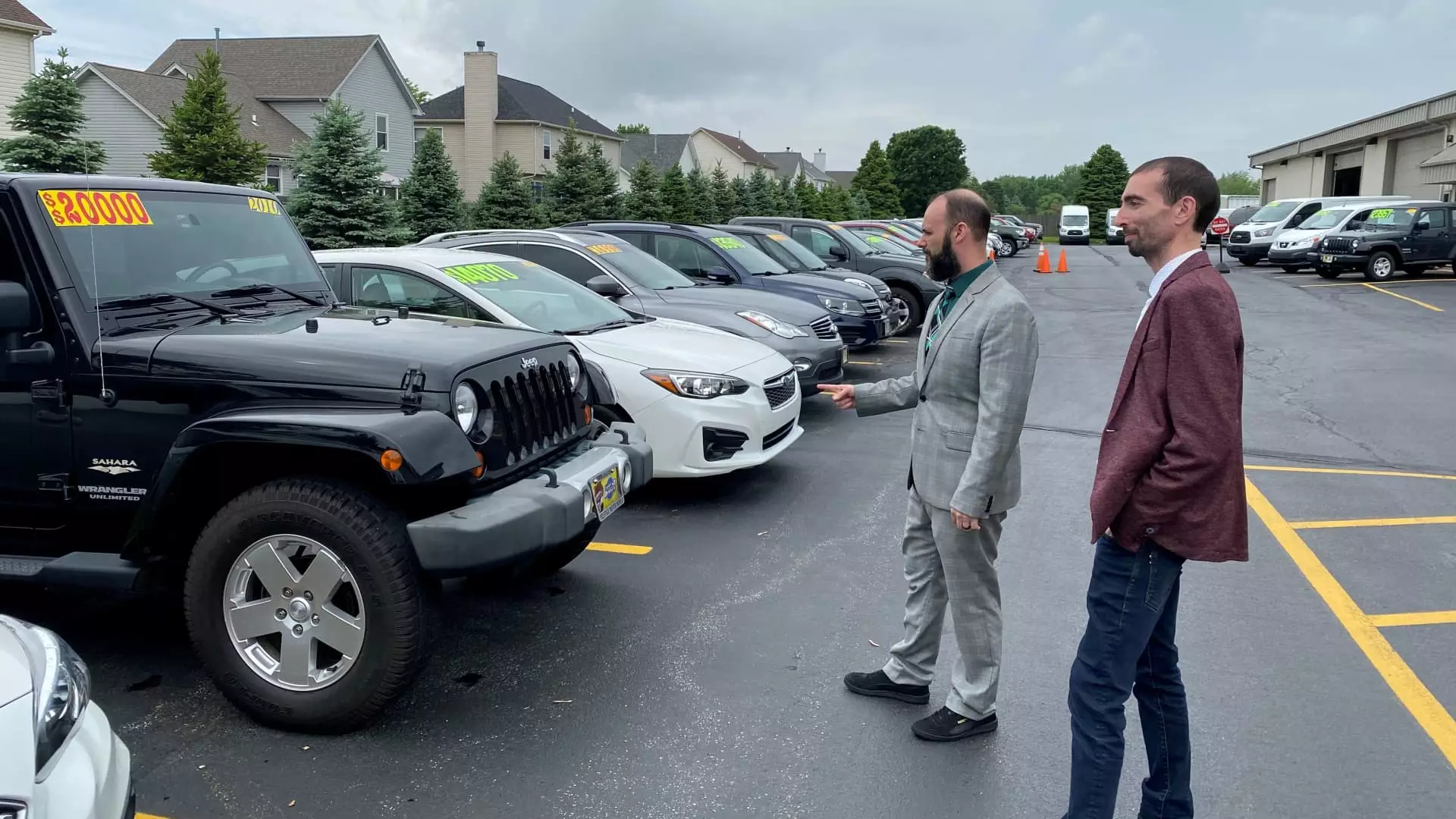As we approach 2025, U.S. car dealers are experiencing a sense of renewed optimism, a sentiment underscored by various market dynamics and the recent political landscape. With President-elect Donald Trump set to return to the White House, many in the automotive sector are hopeful for favorable economic conditions. This optimism is further amplified by easing interest rates and enticing sales incentives offered by automakers, which are pivotal in shaping dealer perceptions and expectations.
According to the Cox Automotive “Q4 2024 Dealer Sentiment Index,” many dealers expressed increased confidence in economic conditions impacting their businesses. The index notably increased to 54, a stark contrast to the previous quarter’s score of 42. This shift suggests that a majority of dealers now perceive market conditions as strengthening compared to a year ago when the index registered at a mere 41. Such figures indicate a significant change in the mood of retailers, who anchor their forecasts in part on the political climate and consumer engagement within the auto industry.
Electric Vehicle Sales: The Cloud Over Optimism
Despite the generally favorable outlook, electric vehicles (EVs) present a concern for many dealers. The expectation of EV sales has taken a downward turn, with the Cox survey indicating that a majority of dealers believe sales will decline over the next quarter. This apprehension stems from potential policy changes under the new administration, which may lead to diminished federal support for EV promotion, including the possible elimination of consumer tax credits that currently incentivize sales.
The current administration’s stance on stricter emissions regulations further complicates the EV market’s trajectory. It’s clear that the fate of significant incentives vital for maintaining consumer interest in electric vehicles is a source of anxiety among car dealers. Jonathan Smoke, Cox’s chief economist, underscored the importance of tax refunds, noting their role in bolstering both the new and used markets. With growing concerns about the sustainability of such incentives, the outlook for EVs grows increasingly precarious.
Market Performance and Future Expectations
On a broader scale, while the sentiment index reflects improved perceptions of the overall auto retail market, it signals that a majority of dealers still characterize the current market as weak. This sentiment, though trending upward, persists well below pre-pandemic levels. The October 2024 political landscape provides clearer visibility, facilitating a more hopeful perspective among dealers as they brace themselves for higher sales in the coming months.
Approximately 35% of the surveyed dealers acknowledged that the political climate impacts their operations; a notable drop from previous figures. This decline indicates a settling uncertainty as the political winds stabilize, which correlates with stock performance across publicly traded auto dealer companies. Remarkably, companies like AutoNation, Lithia Motors, and Sonic Automotive have seen stock increases between 15% and 22% this year, while Group 1 Automotive stands out with an impressive growth of around 40%. High pricing for both new and used vehicles has played a role in driving these shares up.
The automotive industry’s trajectory as it enters 2025 embodies a complex interplay of optimism and hesitation. While car dealers express cautious hope fueled by favorable economic conditions, the looming uncertainty surrounding electric vehicle sales poses significant challenges. Dealers and manufacturers must navigate these treacherous waters with vigilance and adaptability, preparing for potential shifts in consumer behavior and federal policies.
Ultimately, as dealers prepare for the next quarter, the combination of improved market sentiment and the potential for supportive government measures may indicate a resilient path forward. However, the fate of the electric vehicle market will significantly impact their confidence and long-term expectations, demanding that industry players remain proactive in their strategies. The road ahead, while lined with opportunities, is fraught with challenges that require a nuanced understanding of both market dynamics and policy implications.


Leave a Reply